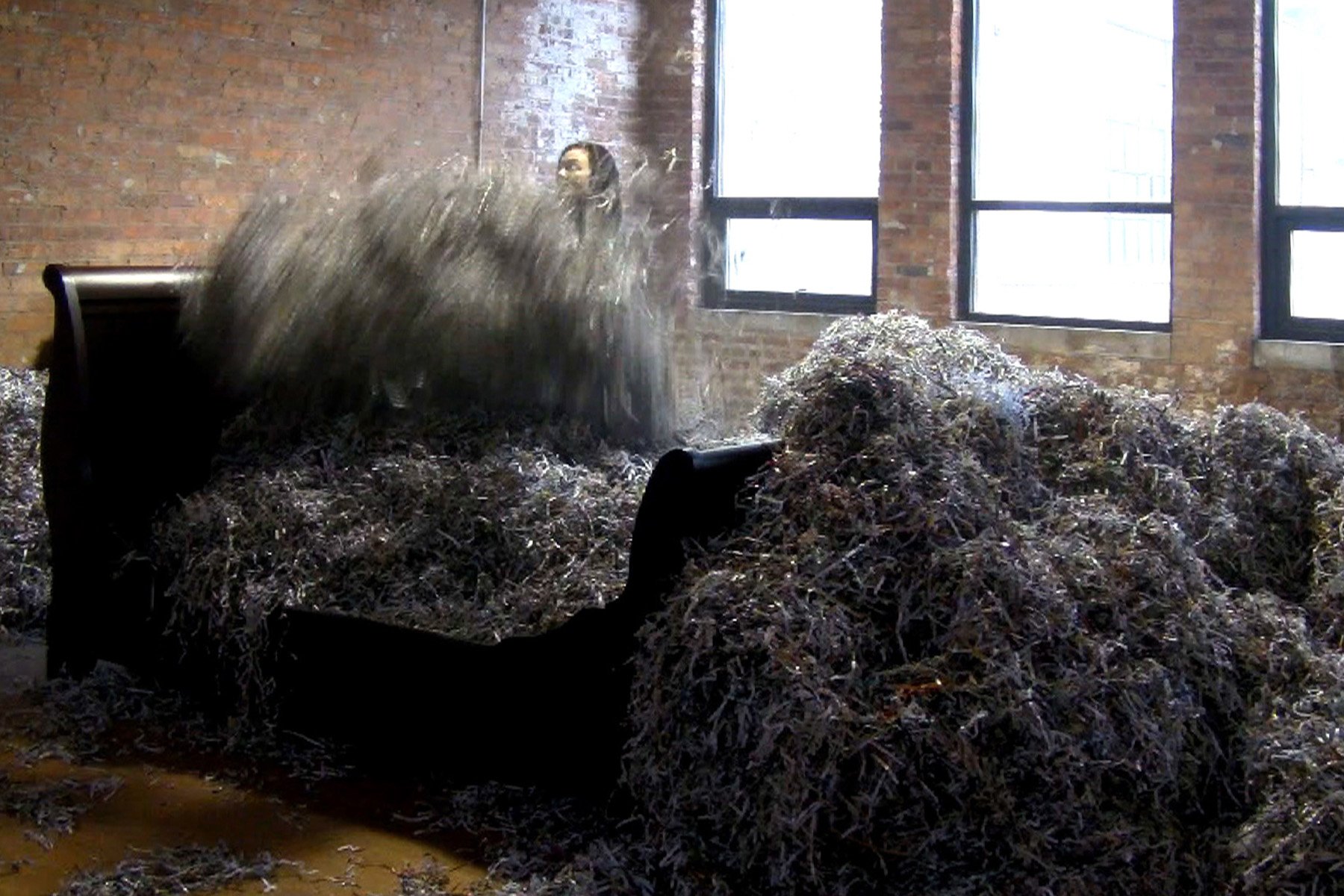Installation has been an integral component of Barbara Hashimoto’s art practice for over 30 years. She incorporates performance with installation and employs these to further her intentions within a larger body of conceptual work. Embracing a broad array of media and formats, Hashimoto finds the process of handling materials as well as the physicality of building installations a stimulus for her ideas.
Her early installations were created during her residency in Japan (1987-1994). Tokyo Bay Project, built at a World War II military embankment, explores the issues of reconciliation from the evolving persona of citizen/terrorist/transient/friend. Pink Tatami addresses cross-cultural feminist concerns and was presented in varying distillations in Japan and The U.S. over a ten-year period.
During her first tenure in Los Angeles (1995-2005) her work explored the book form and content, with source material ranging from Emile Zola’s “Nana” to John Locke’s “Essay Concerning Human Understanding.” The installation/performance Everyman Was Her Slave centers on the repetition of a single line from Zola’s tome. In Experience, a video/audio mix of the artist speaking, writing, and erasing the words of the philosopher, Locke, plays alongside the memorialized tablets bearing what remains of the text after erasure.
While based in Chicago (2006-2020), Hashimoto’s work focused on environmental art projects addressing paper waste, often building installations utilizing the 3,000 cubic feet of shredded junk mail that was delivered to her studio address for one year.
“At their conceptual core, these large scale installation works accentuate by their material essence the overwhelming power of technological society that is driven by repetition and replication, and yet paradoxically remains systemically out-of-sync with nature’s seasonal cycles of change.” [1]
IMAGE:
Bed of Junk Mail, Performance/Installation (2012) video still: Petra Bachmaier
[1] The Impermanence of Things (catalog essay for The Junk Mail Experiment, concurrent exhibitions at Musee du Montparnasse, Paris, and Dubhe Carreno Gallery, Chicago) Colette Chhattopadhyay
